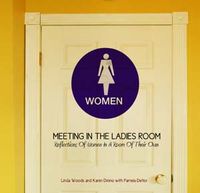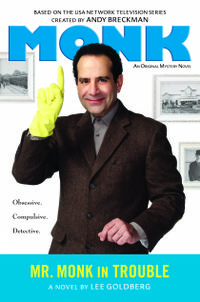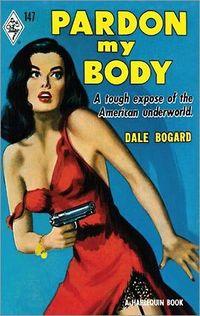Author Sandra Ruttan has blogged at length on numerous sites about her problems with the MWA taking an ethical stand against Harlequin's business practices. She writes, in part:
However, in all of this, do you notice what isn’t discussed? What is and is not eligible is determined by guidelines involving advances and ethical treatment of authors.
Nobody’s talking about the caliber of writing, the quality of the books.
She's absolutely right. Because no professional writing or performing organizations bases their membership on subjective judgments on the quality of a person’s work. The MWA, SFWA, RWA, Horror Writers Association, Writers Guild of America, Screen Actors Guild, Directors Guild, Authors Guild, etc. all use a set of objective criteria to determine who qualifies for membership and which companies qualify as approved (or, in the case of WGA, SAG, DGA, as signatories). The only time they use quality of the work as criteria is in bestowing their awards…all of which are for work produced, published or performed by individuals and organizations that met their criteria.
Her beef, and one echoed by many self-published authors (which she is not, btw), seems to be that professional organizations have professional standards and not everyone can meet them. That’s true. It’s also true of professional organizations in every other field. She went on to say, in the comments to her initial posts:
It’s the authors who had no part whatsoever in this business decision, who a week ago were “legitimately” published who are now no longer with an approved publisher, when not one single thing about the writing, contracting, editing and production of their book has changed that I’m thinking about.
Those authors are unaffected. They remain active members and their books are eligible for Edgar consideration. Only those novels contracted with Harlequin after Dec. 2 are affected by the decision.
If Sandra is truly concerned about the welfare of authors, I would hope that she would be as troubled as MWA, RWA, SFWA, and HWA are by the unethical conflict of interest inherent in the integration of Harlequin’s traditional publishing program and their pay-to-publish venture.
Sandra casually dismisses ethical concerns as irrelevant and something that the MWA, SFWA, RWA and HWA shouldn't be bothering with. I think she's wrong.
It’s my belief that the strong stand taken by these organizations will be a wake-up call to other publishers considering pay-to-publish ventures to avoid unethical conflicts-of-interest and to keep their traditional and pay-to-publish operations separate (as Random House did with Xlibris). If publishers maintain this separation, it will be far less likely that writers will be taken advantage of…and will go into pay-to-publish agreements with a more accurate view of what they are getting for their money. In the end, isn’t that good for everybody?
Sandra goes on to say that she feels that the quality of the books should be the one and only standard across the board.
And when it comes to awards, damn straight the number one concern should be quality of the books, not who published them.
Let’s take that thought one step further. Not every movie that's produced is eligible for an Oscar. There are very strict rules regarding which films qualify for consideration and which don’t (for instance, direct-to-DVD movies do not qualify, even if they are better than anything in the theatres). Should all movies, regardless of who makes them, where they are screened, or any other consideration, be eligible for an Oscar?
The same is true of Emmy awards. There are very strict rules about eligibility there, too. Should everything shown on a television screen, regardless of whether it was on a major broadcast network or not, be eligible for an Emmy?
The WGA awards are only open to scripts written under WGA contract. Does she believe those awards should be open to anybody who has written a produced script for anybody?
I'm sure you can see what I am getting at. The MWA is not alone. Professional organizations have professional standards…for membership, for approved auspices, and for their awards. That’s the way it is.
 My super-talented and creative sisters Linda Woods and Karen Dinino, authors of the wildly acclaimed, bestselling VISUAL CHRONICLES and JOURNAL REVOLUTION, have just published a new art book, which is sure to please their droves of devoted fans, who seem to idolize "the seesters" (sadly, the brothers, Tod and myself, have no such following).
My super-talented and creative sisters Linda Woods and Karen Dinino, authors of the wildly acclaimed, bestselling VISUAL CHRONICLES and JOURNAL REVOLUTION, have just published a new art book, which is sure to please their droves of devoted fans, who seem to idolize "the seesters" (sadly, the brothers, Tod and myself, have no such following). 




